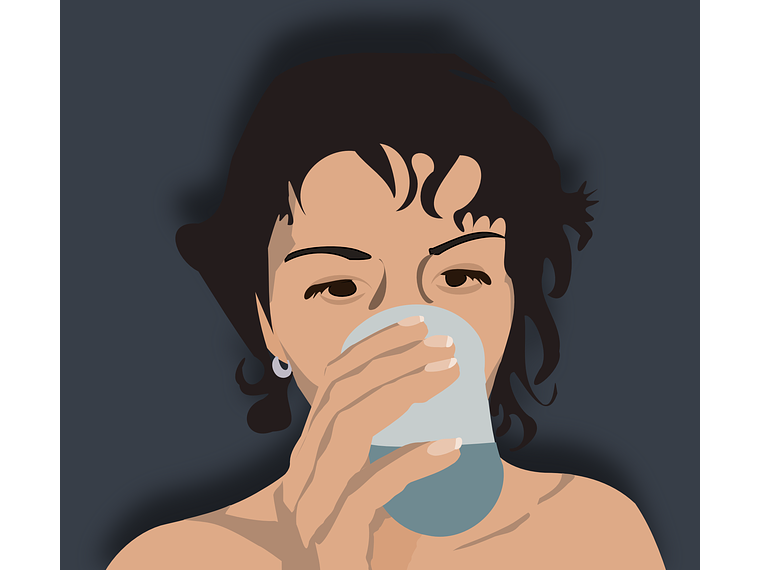Image by OpenClipart-Vectors from Pixabay
WASHINGTON—Congressman Dan Kildee (MI-08), along with Representatives Chris Pappas (NH-01) and Brian Fitzpatrick (PA-01), as well as Senator Kirsten Gillibrand (NY), introduced the bipartisan and bicameral Clean Water Standards for PFAS Act.
This legislation requires U.S. Environmental Protection Agency (EPA) to develop water criteria for PFAS under the Clean Water Act and provides EPA with an ambitious yet achievable roadmap to establish effluent limitations guidelines (ELGs) and standards for eight priority industry categories for all measurable PFAS or classes of PFAS within three years. The bill also includes significant federal support to assist communities in upgrading their municipal water infrastructure to safeguard public health and protect ratepayers.
“Access to safe, affordable drinking water should be a right, not a privilege,” said Kildee. “I’m proud to be introducing this critical bill to hold corporate polluters accountable and protect our communities from dangerous PFAS chemicals. As co-chair of the bipartisan Congressional PFAS Task Force, I will continue working with Republicans and Democrats to protect mid-Michigan families from these toxic chemicals.”

Specifically, this bill would:
- Require EPA to develop water quality criteria under the Clean Water Act (CWA) for all measurable PFAS or classes of PFAS within three years.
- Require EPA to establish effluent limitations guidelines (ELGs) and standards for eight priority industry categories for all measurable PFAS or classes of PFAS. EPA would be required to establish such ELGs according to the following timeline:
- Not later than June 30, 2025: Organic Chemicals, Plastics and Synthetic Fibers; Electroplating; and Metal Finishing.
- Not later than June 30, 2026: Textile Mills; and Landfills
- Not later than June 30, 2027: Leather Tanning and Finishing; Paint Formulating; and Plastics Molding and Forming
- Require EPA to immediately establish PFAS monitoring requirements for three additional industry categories (Pulp, Paper, and Paperboard; Airports; and Electrical and Electronic Components) and reach a determination on whether ELG standards are needed for these industries by December 31, 2025.
- Require EPA to promulgate Method 1633 no later than January 31, 2025.
- In January 2024, EPA finalized a method (EPA Method 1633) to test for 40 PFAS in wastewater, surface water, groundwater, soil, biosolids, sediment, landfill leachate, and fish tissue.
- Authorize $1 billion overall to help publicly owned treatment works address PFAS contamination for fiscal years 2024 through 2028.
- Authorize $12 million for each of fiscal years 2024 through 2028 to help EPA implement the bill.
“The dangers posed by ‘forever chemicals’ like PFAS remain one of the most pressing environmental and public health issues of our time,” said Congressman Pappas. “The Clean Water Standards for PFAS Act will finally take action to hold polluters accountable, establish proactive limits for PFAS, set water quality criteria, and support communities with contaminated water. No industry should be given a free pass to poison our water, no community should bear the burden of addressing this challenge alone, and no family should ever have to wonder whether their drinking water is safe when they turn on the tap. I am proud to re-introduce this legislation today, and I will keep fighting to protect our water until it is enacted into law.”
“Access to clean water and healthy environments is an essential right that all Americans deserve, yet is actively under threat due to the PFAS contamination crisis,” said Senator Gillibrand. “For decades, thousands of manufacturers have been allowed to legally discharge PFAS, exposing far too many communities across New York State and the country to these toxic chemicals. The Clean Water Standards for PFAS Act would finally address these harmful industrial discharges and complement EPA’s recently announced first-ever national drinking water standard for PFAS. I’m proud to work alongside Representative Pappas on this important bill and will keep fighting to protect the public from dangerous PFAS chemicals.”
“Congress must do everything it can to set and enforce criteria to keep PFAS chemicals out of Americans’ drinking water,” said Congressman Fitzpatrick. “I am proud to join Reps. Pappas and Kildee and Sen. Gillibrand in introducing the Clean Water Standards for PFAS Act to improve water quality, prevent the leakage of these ‘forever chemicals’ and ensure that our drinking water will be safe for every generation to come.”
“Industries shouldn’t be able to dump as much PFAS as they like into nearby rivers, streams, and lakes, putting the health of their neighbors at risk,” said Melanie Benesh, Vice President for Government Affairs at the Environmental Working Group.
Benesh added: “The Clean Water Standards for PFAS Act is a critical piece of legislation that will ensure that the EPA acts quickly to turn off the tap on some of the most notorious PFAS polluting industries.”
“NACWA is pleased to support the Clean Water Standards for PFAS Act,” said Adam Krantz, CEO of the National Association of Clean Water Agencies.
Krantz added: “This legislation sets timelines and parameters around EPA actions underway to regulate PFAS under the Clean Water Act, including pretreatment standards, effluent limits and water quality standards. The bill smartly targets industrial PFAS discharges to waterways and industrial discharges to clean water agencies as a key first step – in line with ‘Polluter Pays’ principles. Through public clean water agencies’ pretreatment programs, these utilities can work with industrial dischargers to implement these limits and protect the environment and public health. The bill also requires EPA to promulgate a final method to measure PFAS in wastewater and other key environmental media – an essential step that utilities need before being required to meet CWA limits. These actions will require significant investment and work by clean water agencies – who are willing to be an equitable part of the solution but are not the source of PFAS. For this reason, the bill’s authorization of $1 billion between Fiscal Years 2024-2028 recognizes the need to ensure ratepayers are not held responsible for industry actions and have the financial support needed to meet the requirements set out in this legislation.”

